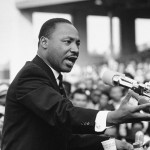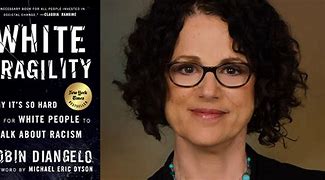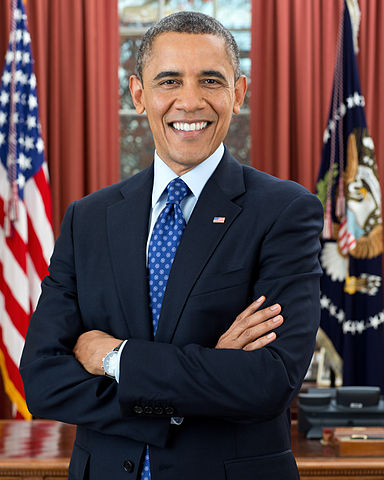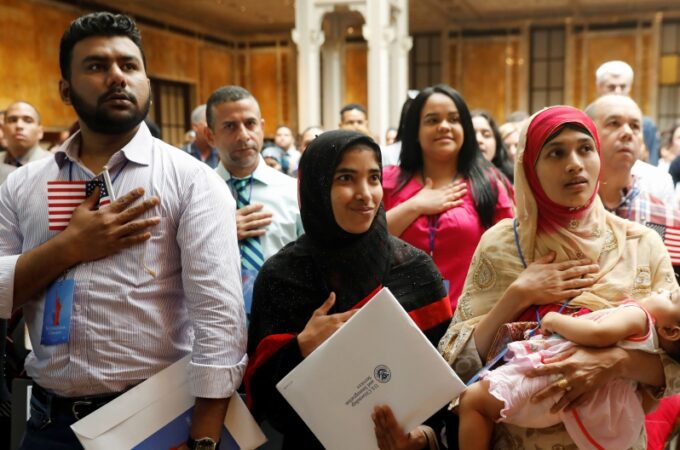What’s driving today’s polarization around race? And what’s the answer?
Two opposite answers—two narratives, if you will—are unfolding. One emphasizes systemic injustice and institutional racism. It views the problems black people face as sourced outside their community and attributes these problems to historic slavery and pervasive, systemic white oppression.
The other narrative emphasizes the importance of personal responsibility; evil is rooted in human hearts. Yes, white racism persists, but much bigger challenges confront the black community, challenges that can be overcome by the actions and decisions of black people in ways that are not ultimately dependent on the actions of white people.
Here’s the latest in our current series, A Dialogue on Racism and Christian Racial Reconciliation
~
[This is part 3 of Scott’s response. You can read part 1 here and part 2 here.]
My point with this brief worldview analysis is this: Biblical Christianity and postmodern critical theory are distinct and incompatible worldviews. They are opposed in their understanding of ultimate reality, power, authority, human nature, morality, epistemology, and much more. These differences matter. They will inevitably lead to vastly different kinds of societies.
The culture that is emerging around us from the worldview of critical social theory is one marked by hostility, division, and a false sense of moral superiority. A culture where truth is replaced by power, and gratitude by grievance. A culture where people are encouraged to put on the mantle of the victim. A culture where personal responsibility is eroded, and where people increasingly blame their problems on others. A culture marked by sexual libertinism. A culture where your identity is defined by your tribe and your tribe is always in conflict with other tribes.
I don’t want to live in this kind of culture. I want to live in a culture where truth, justice, and love are the highest goods. A culture where God is honored as King, and all  people, regardless of their race, sex, or class are respected and loved as His beloved children. A culture where people are judged by “the content of their character, not the color of their skin.” A culture in which justice is based on God’s unchanging moral law and those accused of injustice are treated with fairness and impartiality. A culture that upholds due process and the rule of law. A culture that sees all people as fallen sinners, yet objects of God’s love, mercy, and forgiveness. A culture marked by grace, tolerance, and forgiveness. A culture where reconciliation and redemption are possible. A culture marked by humble gratitude.
people, regardless of their race, sex, or class are respected and loved as His beloved children. A culture where people are judged by “the content of their character, not the color of their skin.” A culture in which justice is based on God’s unchanging moral law and those accused of injustice are treated with fairness and impartiality. A culture that upholds due process and the rule of law. A culture that sees all people as fallen sinners, yet objects of God’s love, mercy, and forgiveness. A culture marked by grace, tolerance, and forgiveness. A culture where reconciliation and redemption are possible. A culture marked by humble gratitude.
My main concern, however, is for the church. I see growing evidence that many of my fellow Christians have absorbed, either consciously or unconsciously, many of the presuppositions of postmodern critical theory, and are attempting to conform their biblical theology to support these presuppositions. I don’t believe this will be sustainable. One will have to give way to the other.
I don’t question their intentions. I believe many have very good intentions. They want to stand against injustice, racism, sexism, and to be a voice for the oppressed, as I do. What they don’t seem to understand is that while postmodern critical theory purports to stand for justice and equality, it completely redefines these words to align with its worldview presuppositions. Take the word “justice” for example. The definition of justice that emerges from the Scriptures would be something like this:
Conformity to God’s moral standard as revealed in the Ten Commandments and the Royal Law: “love your neighbor as yourself.” Justice entails giving people their due as image-bearers of God. It also entails fairly and impartially rendering judgment, righting wrongs, and meting out punishment for lawbreaking. This aspect is reserved for God, and God-ordained authorities including parents in the home, elders in the church, teachers in the school, and civil authorities in the state.
According to postmodern critical social theory, however, justice is redefined to mean something like this:
Deconstructing systems and structures deemed to be oppressive, and redistributing power and resources from oppressors to their victims in the pursuit of equity, or equality of outcome.
Same word. Different dictionaries. Which definition is true? Unless Christians are aware of how such definitions have changed as postmodern critical theory emerges as the dominant ideology in our culture, they can mistakenly believe they are pursuing justice, yet be actively working against it.
White Supremacy
Here’s another phrase that has been redefined. You used it frequently in your last post. A few years ago it was used to describe the Ku Klux Klan, Nazis, or racists like Richard Spencer who openly believe people with white skin are superior to people with black or brown skin. But postmodern critical theory gives it a new meaning. Here’s  DiAngelo: “When I use the term ‘white supremacy’, I do not use it to refer to extreme hate groups. I use the term to capture the pervasiveness, magnitude, and normalcy of white dominance and assumed superiority.”
DiAngelo: “When I use the term ‘white supremacy’, I do not use it to refer to extreme hate groups. I use the term to capture the pervasiveness, magnitude, and normalcy of white dominance and assumed superiority.”
As James Lindsay explains, “this redefinition is designed to explicitly connect happening to be white with participation in a system of dominance and oppression that marginalizes people of color.” In other words, white supremacy now applies to pretty much any person with white skin. The only way out is to renounce your white privilege, and otherwise fully endorse the presuppositions of critical race theory.
And what are the hallmarks of this culture of white dominance that critical race theorists point to? They include (according to a recent infographic from the Smithsonian Museum of African-American History):
- Hard work
- Punctuality (Timeliness)
- Self-reliance
- Politeness
- Objectivity
Who knew these things were aspects of white supremacy? You wrote about “evangelicalism’s lock-step partnership with white supremacy,” and Booker T. Washington’s “accommodation of white supremacy.” This can only make sense if you are using DiAngelo’s redefinition.
Marxism, Communism and American Liberalism
I need to wrap this up, but want to comment briefly on a few other points you made. You wrote: “Neither communism, nor Marxism, nor social critical theories have lifted a pinky finger to accomplish slavery, Jim Crow, Segregation, lynchings, massacres, etc. Only American Liberalism has done that, because only American Liberalism has ever held true power in America, largely under ‘Christian’ leadership.”
 Marxist/Communist regimes are responsible for over 100 million people being starved, slaughtered, and imprisoned in the 20th century alone. Many millions were enslaved in gulags and forced labor camps. It is still happening today. Nearly one million Uighurs are enslaved in concentration camps run by the Chinese Communist Party right now. They are being systematically tortured, brainwashed, and killed for their body parts. Yet you imply that Marxism isn’t the real problem, rather it is the dark and malevolent force of “American Liberalism.”
Marxist/Communist regimes are responsible for over 100 million people being starved, slaughtered, and imprisoned in the 20th century alone. Many millions were enslaved in gulags and forced labor camps. It is still happening today. Nearly one million Uighurs are enslaved in concentration camps run by the Chinese Communist Party right now. They are being systematically tortured, brainwashed, and killed for their body parts. Yet you imply that Marxism isn’t the real problem, rather it is the dark and malevolent force of “American Liberalism.”
But is slavery a distinct byproduct of American Liberalism and Christianity, as you suggest? Rather, isn’t slavery common in cultures worldwide? Even today, slavery exists in places like Mauritania and Libya, which are hardly bastions of American Liberalism, or Christianity.
Third, I’m fine with you highlighting the shameful aspects of American history as you do here. I too teach all of these things to my children. But I’m not fine if you completely ignore the other list, which is also the fruit of American Liberalism and Christianity:
- The world’s first organized anti-slavery society was formed in Pennsylvania in 1774.
- The first legal ban on slavery anywhere in the world was in Vermont in 1777.
- Five of the original 13 states followed suit either during or immediately after the Revolution, passing bans on slavery between 1780 and 1784.
- The first federal ban on slavery, in the Northwest Territory, was drafted in 1784 by Thomas Jefferson and passed by the Confederation Congress in 1787. Its language would later be adopted directly into the 13th Amendment.
- Congress banned the slave trade at the first possible moment, in 1807, at the insistence of President Jefferson.
- Slavery was eventually abolished after a bloody civil war in which thousands of white people died to end this evil institution.

- Significant progress in racial equality was made through the Civil Rights movement of the 1950s and 60s, and various affirmative action policies.
- We elected the first black president in 2009, and the whole country celebrated this milestone, even those who disagreed with Barack Obama’s policy positions, as I did.
While America continues to be plagued by overt racism, it is, today, one of the least racist countries on earth, which explains why overwhelming numbers of people, including those with black and brown skin, flock to this country and almost nobody wants to leave it.
This list is also the fruit of American Liberalism. A truthful take on our past acknowledges America’s racist history in full, horrific detail, but it also remembers and celebrates all we’ve done to overcome the evils of racism and racial injustice, and is grateful for those who sacrificed much to bring them about.
Gratitude, however, is a virtue that is notably absent from postmodern critical theory. It is, after all, critical. When it comes to America, it focuses only on things to be critical about, and on tearing down. We see this happening literally with the tearing down of statues. This is not a recipe for social harmony, or for reconciliation. I have my fair share of shortcomings and moral failings. I can tell you that if my wife were only critical of me, and only focused on my sins while ignoring any redeeming characteristics, we wouldn’t have a particularly healthy relationship.
- Scott Allen
To be continued …







1 Comment
Jaime Suárez González-Estéfani
November 7, 2020 - 5:17 amThank you Scott for your effort in puting things in a clear way!